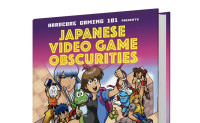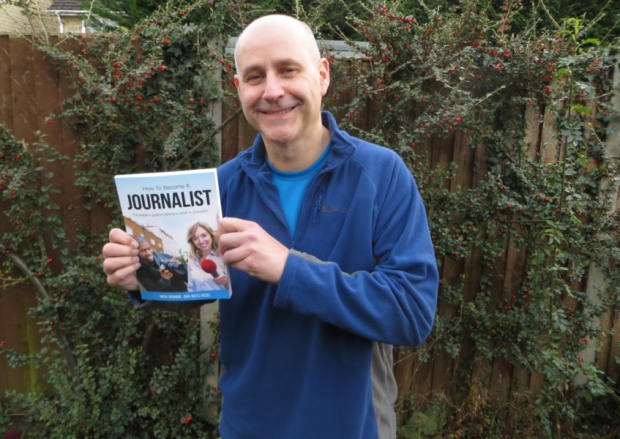firstwriter.com's database of publishers includes details of 2,760 English language publishers that don't charge authors any fees for publishing their books. The database is continually updated: there have been 57 listings added or updated in the last month, and the database was last updated yesterday, April 16. With over a dozen different ways to narrow your search you can find the right publisher for your book, fast.
News

Authors have been left unsure whether their books will be published and when they will receive outstanding payments after crowdfunding publisher Unbound went into administration last week.
The unique selling point of the publisher, launched in 2011 by QI researchers John Mitchinson and Justin Pollard, and Crap Towns author Dan Kieran, was that it allowed writers to pitch ideas online directly to readers. If enough people pledged financial support, the author would write the book, with supporters receiving various perks, such as early access to the book or a special edition.
Unbound confirmed last week that the business had been acquired by the newly-formed Boundless Publishing Group. A statement on its website said “Boundless will be moving forward with the majority of the Unbound projects”, instructing readers who have made pledges to “check back at the end of March when our new website will be live and you will have access to your account and order status”.
Boundless will be led by Archna Sharma, who was appointed as Unbound’s new CEO in January, with Mitchinson as a director. “This is the beginning of a bold new era,” said Sharma in a statement. “Boundless looks forward to forging exciting new connections between authors and readers.”

Spotify Audiobooks has partnered with various publishers and authors to license and produce hundreds of titles.
A new website has been launched for independent authors to submit short-form stories for audiobook creation and publishing consideration by Spotify.
Leah Kleynhans, Spotify Audiobooks Producer says: “Spotify Audiobooks is thrilled to be opening submissions for short-form content written by independent authors who are as passionate about audiobooks as we are.
“We know Spotify users will love exploring these intense, bite-sized listens, and expanding our audiobooks catalogue in this way gives fans even more choice in the content they love to consume on our platform.”

"I might have accidentally destroyed an entire publishing house!"
Update [Fri 14th Mar 2025, 2:15pm]: The Bookseller has reported that troubled on-demand book publisher Unbound has gone into administration.
Allister Manson and Charles Turner of Opus Restructuring were appointed administrators of the company on 10th March 2025.
Author Steven Goodwin, one of the many writers who hasn't been paid by the publisher, has posted the following message on Linkedin:
I might have accidentally destroyed an entire publishing house!
At the end of 2023 I released a book "20 GOTO 10" via the publisher Unbound. (4.4 stars on Amazon!) It sold tens of thousands of copies, and yet, I was not paid for any of them. I waited. Politely emailed. Looked past their emails of "any day now" and waited some more.

Bloomsbury is launching a new science fiction and fantasy imprint, Bloomsbury Archer, which it says will cross "the constellation of speculative fiction", helmed by publishing director Vicky Leech Mateos. The ‘Archer’ derives from the existing Bloomsbury emblem of Diana, Roman goddess of the hunt, and references the new imprint’s "pursuit of the very best storytelling and new stars".
Leech Mateos will build a list that covers fantasy, science fiction, crossover stories, speculative romance, horror and mythological retellings. The US branch will be led by publishing director Noa Wheeler (editor of Bloomsbury’s current biggest brand, Sarah J Maas) and senior director of marketing and publicity Erica Barmash.
The list kicks off with Samantha Shannon’s Among the Burning Flowers, a prequel to the Roots of Chaos series, which will be released in September 2025. Shannon’s full backlist will also move under the new imprint.
Articles
Signing a contract with even a brand-name traditional book publisher initially feels like a ticket to Nirvana. You may expect, for example, your new publisher to set you up with a big fat advance, a multi-city promotional tour, your very own personal PR rep and multiple copies of your book on every bookshelf in the nation (and Canada) for as long as you and your book shall live.
But to understand how book publishers really work, study this list of what I call the four great “myths” of traditional book publishing. Then, by all means, proceed to seek out a publisher if that’s your goal but do so with your eyes wide open. Your relationship with your publisher will run much smoother if you recognize its pitfalls as well as its glories.
When Simon & Schuster announced in late February that it is canceling Milo Yiannopoulos’s book, Dangerous, many in the publishing industry reacted with a sigh of relief. The six-figure book deal that the right-wing provocateur landed at Threshold Editions, S&S’s conservative imprint, late last year caused a wave of criticism—from various factions of the media, the public, and the house’s own authors. And, though it’s still unclear what ultimately motivated the publisher to yank the book, the fervor that the alt-right bad boy’s deal caused put some on alert. Could other publishers be pressured into canceling books by controversial conservatives? Does the industry have a double standard for authors on the right? Does it matter?

Not so long ago, writing and publishing your own book was just a pipe dream for many of us.
It wasn’t so much getting the words down on paper which was putting us off.
It was more the expense of either finding an agent and a publisher or paying through the nose to print dozens of copies yourself which might have ended up unsold and gathering dust in the garage.
But that is resoundingly no longer the case. Digital publishing and online booksellers such as Amazon have been an absolute game-changer.

Traditional book publishers. They were once known as the titans of the book publishing industry. In the Baby Boomer era, self-publishing was an unknown concept. You needed a traditional publisher if you wanted the best chance to succeed with your book.
During that time, there was significantly less competition for publishers and authors, meaning more book sales for both parties.
Over time, traditional publishers (especially The Big 5) gradually started to exploit authors by offering lower royalties and seizing the author’s publishing rights.
Submit a listing
If you run, are involved in, or just know of a publisher not included in our publishers database, you can suggest a new listing by clicking here. You can also use this form for suggesting amendments to existing listings.
To view our inclusion policy, click here.





